Dr. GOPAKUMAR A
HoD, Dept of Electronics & Communication Engineering
ece@mesce.ac.in
9895364127
Electronics & Communication Engineering
Department of Electronics and Communication Engineering (ECE) was established in the year 1994. The department offers Undergraduate (UG), Post Graduate (PG) and Ph.D. degree programs that provide students with the knowledge and tools they need to succeed in the Electronics and Communication Engineering. Research in the department focuses on Communication Systems, Wireless Networks, Signal and Image Processing.
In 1994, Four year B.Tech. Degree programme in Electronics and Communication Engineering was started with 60 seats affiliated to University of Calicut. In 2012, the department started M.Tech. programme in Communication Engineering and Signal Processing with an intake of 18 students. From 2016 onwards, the department is recognized as a place of research for offering Ph.D. Programme of APJ ABDUL KALAM Technological University.
The B-Tech. Degree course in Electronics and Communication Engineering offered by the department follows the curriculum and syllabi as well as rules and regulations of APJ ABDUL KALAM Technological University. This course is of 8 semesters and covers a period of 4 years, strictly conforms to the AICTE norms and regulations.
The department has been accredited by National Board of Accreditation (NBA) in 2004 and 2009 and currently the department is in the process of renewal of accreditation. Student branch of IEEE is actively functioning in the department. Students Association of the department namely Association of Electronics and Communication Engineering (AECE) organizes various curricular and co-curricular activities beneficial for the students.
Vision
To be a centre of excellence in Electronics and Communication Engineering education and research to produce globally competent and socially committed professionals.
Mission
To impart high quality education in Electronics and Communication Engineering.
To provide best facilities, infrastructure and training to students and faculty members and thereby create an ambience to excel in engineering education and research.
To have adequate mechanisms to enhance understanding of implementation of theoretical concepts in practical situations of industrial and social relevance.
Programmes Offered
B.Tech in Electronics and Communication - 60 Seats
M.Tech in Communication Engineering and Signal Processing - 18 Seats
PhD - Seats
PROGRAM EDUCATIONAL OBJECTIVES (PEOs)
After 3-5 years of graduation, our students will be able to do the following-
- PEO1: Demonstrate engineering knowledge and competency in professional careers in industry and / or academia.
- PEO2: Design, develop, test and analyze hardware and / or software systems for solving problems in a rapidly changing global economic and technological environment.
- PEO3: Pursue lifelong learning in its diverse forms such as higher education, certifications and research.
- PEO4: Function as an ethically and socially responsible team leader / member by effectively communicating professional knowledge among peers, customers and supervisors.
PROGRAM SPECIFIC OUTCOME (PSOs)
- PSO1: An ability to design, develop and analyze moderately complex analog and digital electronics circuits and systems.
- PSO2: An ability to design, develop and analyze communication and/or signal processing systems with modern tools and processes.
- PSO3: An ability to acquire, present and document knowledge in Electronics and Communication Engineering and related areas.
- PSO4: An ability to pursue higher education in reputed institutions, develop entrepreneurial skills to set up small scale industries in Electronics and Communication Engineering and related fields to serve the society at large.
PROGRAM OUTCOMES (POs)
- PO1: Engineering Knowledge : Apply the knowledge of mathematics, science, engineering fundamentals, and an engineering specialization to the solution of complex engineering problems.
- PO2: Problem Analysis : Identify, formulate, review research literature, and analyze complex engineering problems reaching substantiated conclusions using first principles of mathematics, natural sciences, and engineering sciences.
- PO3: Design/development of solutions : Design solutions for complex engineering problems and design system components or processes that meet the specified needs with appropriate consideration for the public health and safety, and the cultural, societal, and environmental considerations.
- PO4: Conduct investigations of complex problems : Use research-based knowledge and research methods including design of experiments, analysis and interpretation of data, and synthesis of the information to provide valid conclusions.
- PO5: Modern tool usage : Create, select, and apply appropriate techniques, resources, and modern engineering and IT tools including prediction and modeling to complex engineering activities with an understanding of the limitations.
- PO6: The engineer and society : Apply reasoning informed by the contextual knowledge to assess societal, health, safety, legal and cultural issues and the consequent responsibilities relevant to the professional engineering practice.
- PO7: Environment and sustainability : Understand the impact of the professional engineering solutions in societal and environmental contexts, and demonstrate the knowledge of, and need for sustainable development.
- PO8: Ethics : Apply ethical principles and commit to professional ethics and responsibilities and norms of the engineering practice.
- PO9: Individual and team work : Function effectively as an individual, and as a member or leader in diverse teams, and in multidisciplinary settings.
- PO10: Communication : Communicate effectively on complex engineering activities with the engineering community and with society at large, such as, being able to comprehend and write effective reports and design documentation, make effective presentations, and give and receive clear instructions.
- PO11: Project management and finance: Demonstrate knowledge and understanding of the engineering and management principles and apply these to one’s own work, as a member and leader in a team, to manage projects and in multidisciplinary environments.
- PO12: Life-long learning: Recognize the need for and have the preparation and ability to engage in independent and life-long learning in the broadest context of technological change.
Copyright © 2026 MES College of Engineering. All Rights Reserved
Developed and maintained by Cabin4 Professionals





